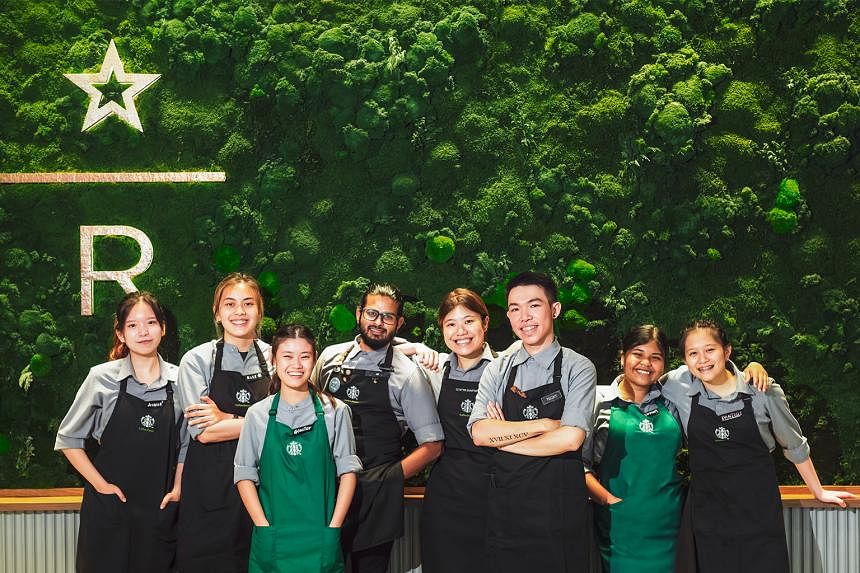On most Fridays, Mr Ronnie Wong leaves work at 3.30pm so he can catch a bus that crosses the Causeway to reach his home in Johor Bahru, Malaysia, by 8.30pm to spend the weekend with his wife and three-year-old son.
His flexi-work arrangement stands out in the food and beverage (F&B) sector, known for its long hours and rigid shift work. Mr Wong also works only five days a week, another anomaly in the industry where people usually work five and a half days.
All this is made possible by his employer, Starbucks Singapore which prides itself on putting the human touch in its company culture and giving support to staff – whom it refers to as partners – at every stage of their lives.
“How can we serve you better?” That’s a question Starbucks doesn’t ask just its customers, but also its own employees, says partner resources director Celestina Lee.
“This approach to staff welfare cannot be static and evolves with our partners’ changing needs,” she adds.
It is for this reason that Starbucks Singapore was ranked among the best 250 employers in Singapore in 2024, according to a list compiled by global research firm Statista in collaboration with The Straits Times. This marks the fifth consecutive year it has appeared on this list.
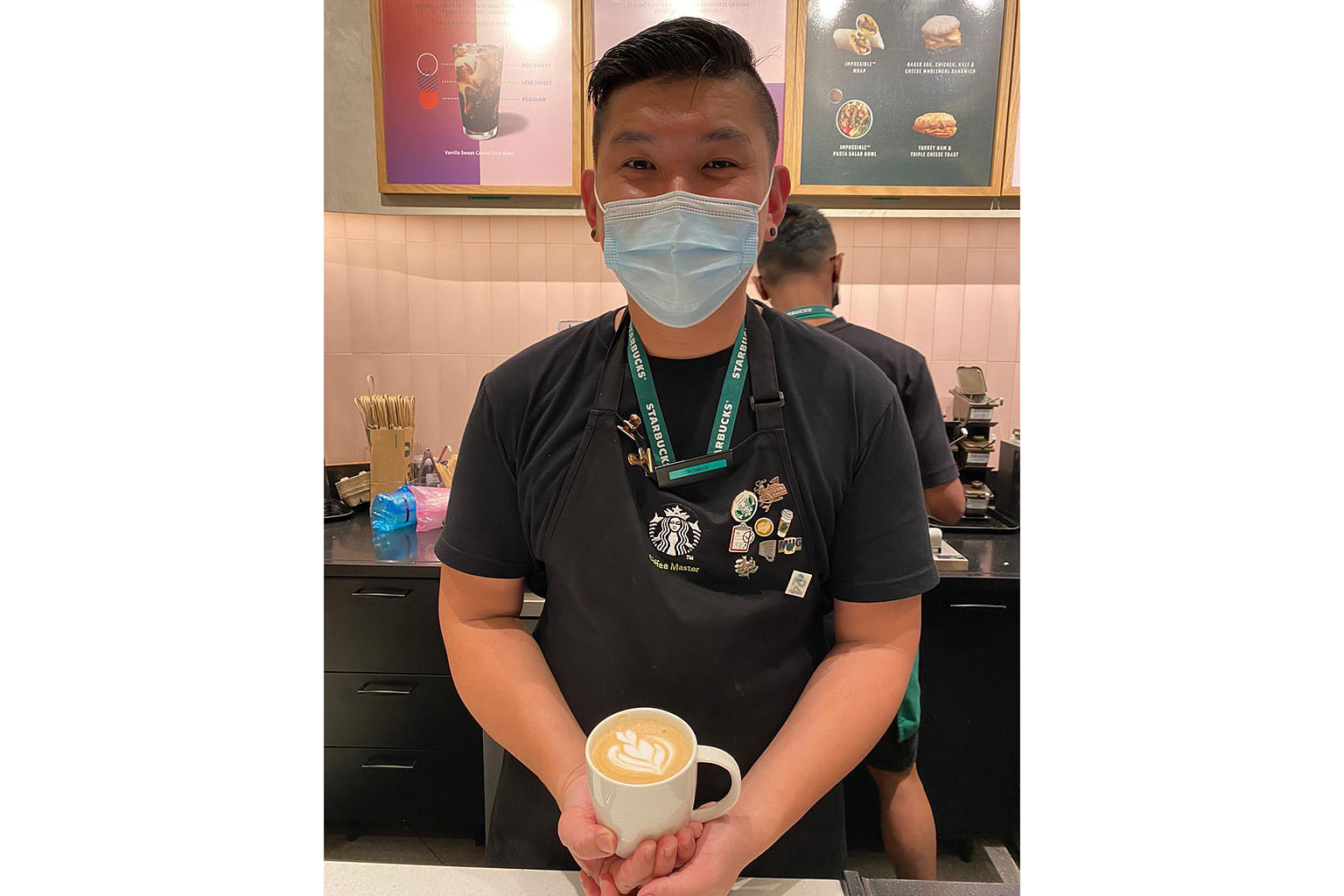
Mr Wong is a prime example of how Starbucks supports its staff, both in their career and personal lives.
As an 18-year-old fresh out of school, the Malaysian was scouting for part-time work in Orchard Road when he chanced upon an opening at the Starbucks outlet at Wisma Atria. The manager there was so passionate about his job that Mr Wong signed on immediately as a part-time barista.
Over the years, Mr Wong has been promoted several times. At 21, he became a full-time supervisor; at 23, a store manager. Now 33, he is a district manager, overseeing nine stores and 181 employees.
On why he has stayed on with the company, Mr Wong says: “It has always been about the people here. There’s a connection and a bond. We take care of one another and also look out for one another by sharing our challenges. Starbucks has had my back at every stage of my life.”
Brewing a culture of openness and passion pursuits
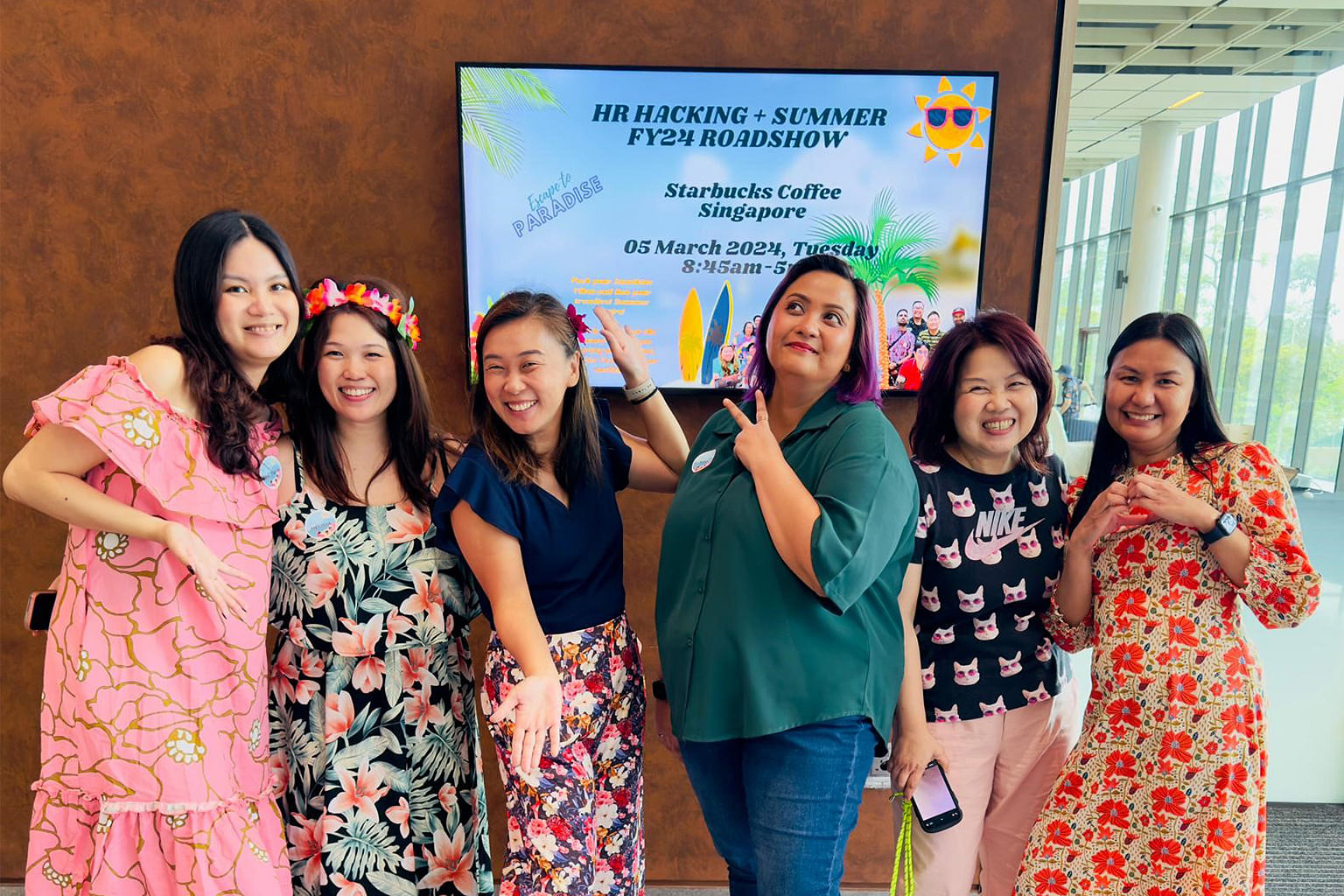
When Mr Wong first started work at the F&B chain, he had a diploma in aerospace electronics from Singapore Polytechnic. During one of the quarterly conversations that Starbucks managers hold with both full-timers and part-timers, his supervisor encouraged him to work towards getting a degree.
According to Ms Lee, these regular conversations allow staff to learn more about how they can grow with the company.
“It is a huge time investment, but an important one,” says Ms Lee: “70 per cent of our learning process comes from these conversations where we find out how we can support our partners better.”
Mr Wong was initially worried about the time and costs involved in furthering his education while also working full-time. But Starbucks made it possible by sponsoring the full $20,000 tuition fee for his two-year Bachelor of Arts (Honours) Business with Marketing Management degree course at Kaplan Singapore.
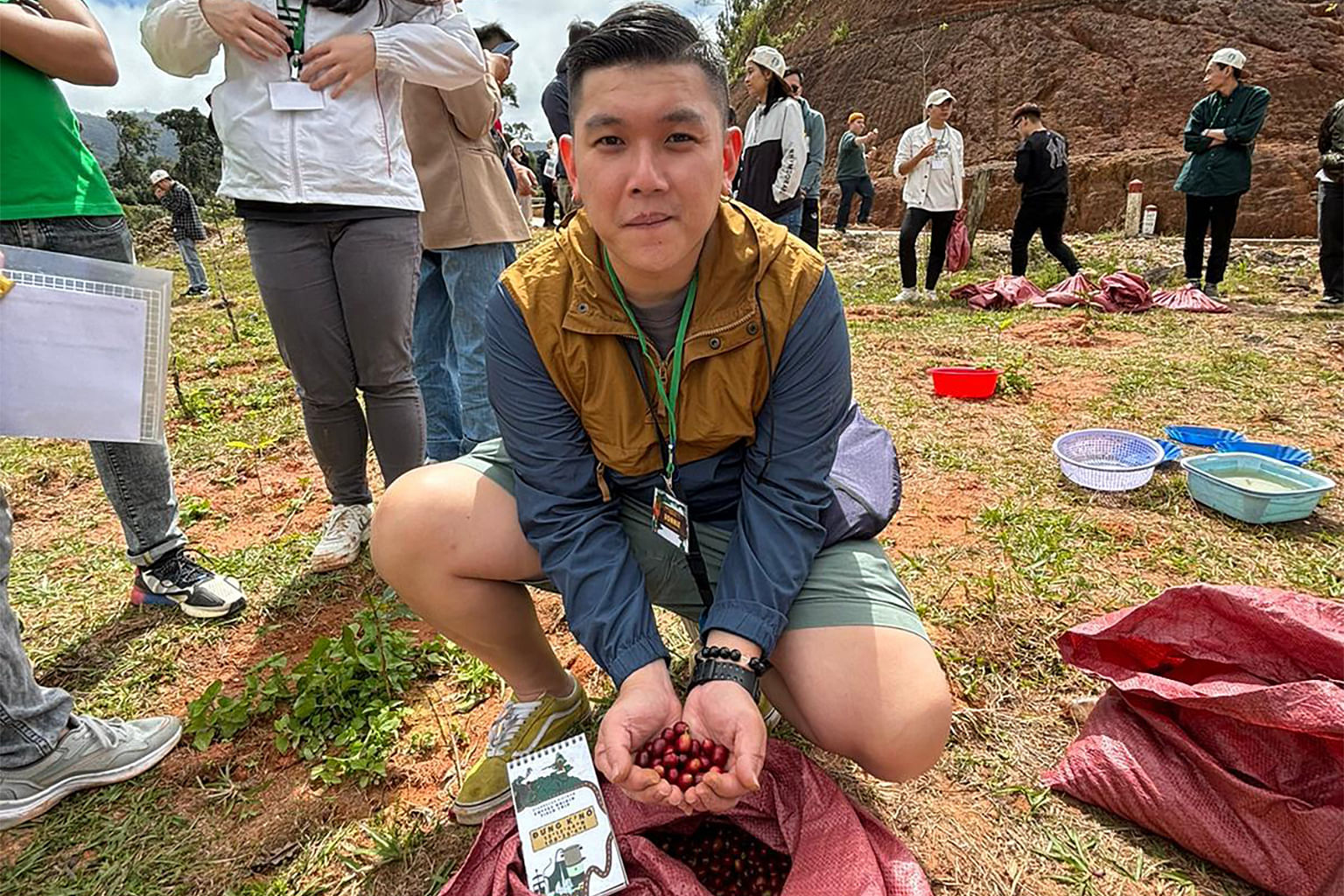
Over the last few years, Starbucks has given out some 40 education sponsorships worth $250,000, which are open to managers and full-time shift supervisors who have worked for at least one year at the company. The bond period is typically between one and two years, depending on whether the employee pursues a diploma or degree course, and if it is a full or partial sponsorship. There are plans to do away with the bond term in the near future.
During his studies, Mr Wong’s district manager gave him the autonomy to plan his own shift schedule, allowing him to balance both lessons and work. For example, Mr Wong would start work at 6.30am on the days he had evening classes.
Starbucks partners who are pursuing further education are also entitled to leave days during exam periods. Says Mr Wong: “I felt so fortunate because the company was already paying for my education, yet they still gave me extra leave to study for my exams.”
Adds Ms Lee: “This is the support we give to our partners on our education sponsorship programme. We also check in with them every quarter to see if they are managing their shifts and studies, and we will work with their managers if the arrangement is not ideal for them.”
Enticing and retaining talent in the F&B industry
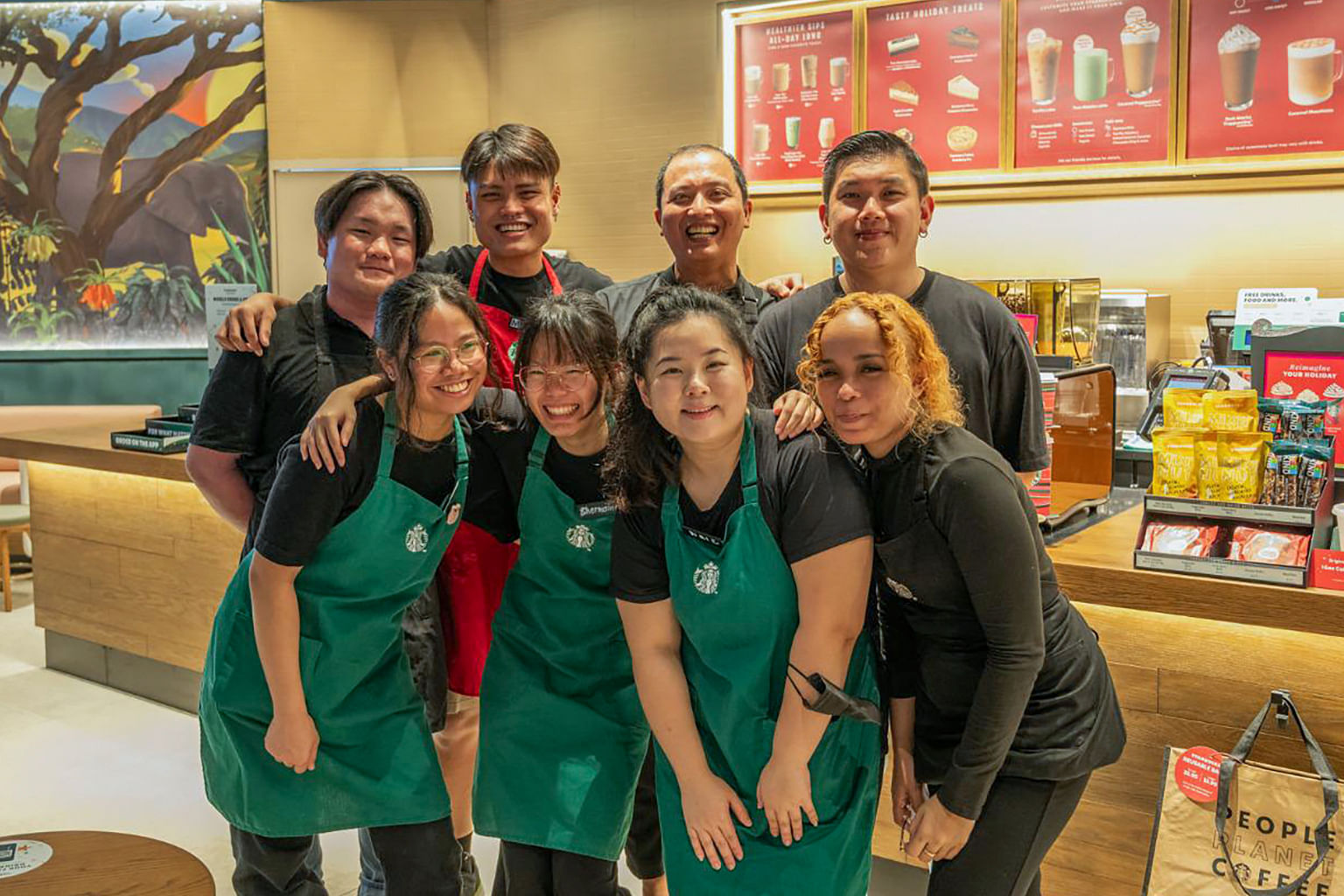
According to Ms Lee, Starbucks is one of the original adopters of flexi-work arrangements, having started them 10 years ago.
“We are very thoughtful towards the different stages of life that our employees go through. Our company hires employees as young as 15, and we also have an 84-year-old partner working at one of our stores,” she says.
Some partners may want to work only on weekday mornings while others prefer weekend shifts, so managers help to customise a shift schedule for them.
Besides a company-wide fiveday work week, even for retail staff, there are also staggered working hours and an option for office staff to work from home.
Part-time retail employees also have the opportunity to pick up extra shifts. In 2022, Starbucks partnered with Temasek Polytechnic to create its Find-A-Shift app where store managers put up the availability of last-minute shift slots so part-timers will be notified. This helps individual stores handle unexpected manpower shortages and part-timers get a chance to work at different stores.
Ms Lee says: “We have 150 stores in Singapore so why confine yourself to one store? By matching manpower availability to stores, the app is an improvement on our daily processes.”
This flexibility, she says, is one of the key reasons for Starbucks’ high retention rate, with many staff – including herself – having worked there for 10 years or more. Some of them are barely 26 years old, notes Ms Lee.
The company is also attractive to part-timers, even in a manpower-starved industry, as they enjoy similar benefits given to full-timers, including annual wage raises, health screening for those aged above 35, and yearly work performance reviews.
Even with the slew of benefits and perks, Starbucks still prioritises mental well-being. Full-timers can claim up to $300 a year to pay for visits to a counsellor or psychiatrist from an approved panel.
“Anyone who manages a team also goes through two days of peer support training on understanding stress, identifying signals of distress, and knowing how to give temporary support to staff and who to refer them to,” adds Ms Lee.
This explains why Mr Wong loves his job as much as his go-to Starbucks beverage: an iced Americano. He says: “This company has always been about the people, and I have always felt there was something bigger waiting for me at Starbucks.”

